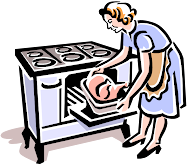Fifth Sunday of Lent, B
March 25, 2012
Gospel Passage
John 12:20 Now among those who went up to worship at the festival were some
Greeks. 21 They came to Philip, who was from Bethsaida in Galilee, and said to him,
“Sir, we wish to see Jesus.” 22 Philip went and told Andrew; then Andrew and
Philip went and told Jesus. 23 Jesus answered them, “The hour has come for the Son
of Man to be glorified. 24 Very truly, I tell you, unless a grain of wheat falls into the
earth and dies, it remains just a single grain; but if it dies, it bears much fruit. 25
Those who love their life lose it, and those who hate their life in this world will keep
it for eternal life. 26 Whoever serves me must follow me, and where I am, there will
my servant be also. Whoever serves me, the Father will honor. 27 “Now my soul is
troubled. And what should I say — ‘Father, save me from this hour’? No, it is for this
reason that I have come to this hour. 28 Father, glorify your name.” Then a voice
came from heaven, “I have glorified it, and I will glorify it again.” 29 The crowd
standing there heard it and said that it was thunder. Others said, “An angel has
spoken to him.” 30 Jesus answered, “This voice has come for your sake, not for
mine. 31 Now is the judgment of this world; now the ruler of this world will be
driven out. 32 And I, when I am lifted up from the earth, will draw all people to
myself.” 33 He said this to indicate the kind of death he was to die.
Questions
The Greeks said, “We wish to see Jesus!” If someone came up to you saying
that they wished to see Jesus, what would you tell them? What would you do?
Where could they find Jesus?
Jesus says that whoever serves Him must follow Him so that where He is, we
will be too. How do we serve Jesus? Where are we following Him?
Sometimes when plants die (like wheat), a seed drops and fruit can grow from
the seed. If you let something you do “die” (like stop fighting with your
family), what good “fruit” would come from that? What else could you let
“die” to make some good “fruit” grow?
used with permission - Fr. Roger Landry
Thursday, March 22, 2012
Monday, March 12, 2012
Family Bible Study - Fourth Sunday of Lent
Fourth Sunday of Lent, B
March 18, 2012
Gospel Passage
John 3:14 And just as Moses lifted up the serpent in the wilderness, so must the Son
of Man be lifted up, 15 that whoever believes in him may have eternal life. 16 “For
God so loved the world that he gave his only Son, so that everyone who believes in
him may not perish but may have eternal life. 17 “Indeed, God did not send the Son
into the world to condemn the world, but in order that the world might be saved
through him. 18 Those who believe in him are not condemned; but those who do not
believe are condemned already, because they have not believed in the name of the
only Son of God. 19 And this is the judgment, that the light has come into the world,
and people loved darkness rather than light because their deeds were evil. 20 For all
who do evil hate the light and do not come to the light, so that their deeds may not be
exposed. 21 But those who do what is true come to the light, so that it may be clearly
seen that their deeds have been done in God.”
Questions
God the Father loved the world so much that He let His only Son die so that
we could have eternal life. Could anyone else ever love you this much? Is
Jesus loves you this much, how much should you love him?
God sent His Son to save the world. Save the world from what? How do we
get saved?
Jesus said that He had to be lifted up, just like a serpent in the desert. When
the serpent was lifted up on a pole, all those who were dying because of
serpent bites were saved. When will Jesus be lifted up? How will He be lifted
up? Who will be saved by that?
used with permission - Fr. Roger Landry
March 18, 2012
Gospel Passage
John 3:14 And just as Moses lifted up the serpent in the wilderness, so must the Son
of Man be lifted up, 15 that whoever believes in him may have eternal life. 16 “For
God so loved the world that he gave his only Son, so that everyone who believes in
him may not perish but may have eternal life. 17 “Indeed, God did not send the Son
into the world to condemn the world, but in order that the world might be saved
through him. 18 Those who believe in him are not condemned; but those who do not
believe are condemned already, because they have not believed in the name of the
only Son of God. 19 And this is the judgment, that the light has come into the world,
and people loved darkness rather than light because their deeds were evil. 20 For all
who do evil hate the light and do not come to the light, so that their deeds may not be
exposed. 21 But those who do what is true come to the light, so that it may be clearly
seen that their deeds have been done in God.”
Questions
God the Father loved the world so much that He let His only Son die so that
we could have eternal life. Could anyone else ever love you this much? Is
Jesus loves you this much, how much should you love him?
God sent His Son to save the world. Save the world from what? How do we
get saved?
Jesus said that He had to be lifted up, just like a serpent in the desert. When
the serpent was lifted up on a pole, all those who were dying because of
serpent bites were saved. When will Jesus be lifted up? How will He be lifted
up? Who will be saved by that?
used with permission - Fr. Roger Landry
Labels:
Family Bible Study,
Fourth Sunday of Lent,
Year B
Family Bible Study - Third Sunday of Lent
Third Sunday of Lent, B
March 11, 2012
Gospel Passage
John 2:13 The Passover of the Jews was near, and Jesus went up to Jerusalem. 14 In
the temple he found people selling cattle, sheep, and doves, and the money changers
seated at their tables. 15 Making a whip of cords, he drove all of them out of the
temple, both the sheep and the cattle. He also poured out the coins of the money
changers and overturned their tables. 16 He told those who were selling the doves,
“Take these things out of here! Stop making my Father’s house a marketplace!” 17
His disciples remembered that it was written, “Zeal for your house will consume
me.” 18 The Jews then said to him, “What sign can you show us for doing this?” 19
Jesus answered them, “Destroy this temple, and in three days I will raise it up.” 20
The Jews then said, “This temple has been under construction for forty-six years, and
will you raise it up in three days?” 21 But he was speaking of the temple of his body.
22 After he was raised from the dead, his disciples remembered that he had said this;
and they believed the scripture and the word that Jesus had spoken. 23 When he
was in Jerusalem during the Passover festival, many believed in his name because
they saw the signs that he was doing. 24 But Jesus on his part would not entrust
himself to them, because he knew all people 25 and needed no one to testify about
anyone; for he himself knew what was in everyone.
Questions
Jesus was very angry in this reading when He sent the money changers out of
the temple with a whip. Why was He angry? If Jesus, who is God, could be
angry for a good reason, what does that mean about our anger? Can we get
angry at others if we have a good reason?
Jesus called his body a temple. St. Paul tells us that our bodies are “temples of
the Holy Spirit.” If that’s true (and it is!), how clean should we keep our
temple? How do we keep it clean? What can make it dirty?
Jesus had “zeal” for His Father’s house. Zeal means really strong love. Do you
have zeal for the things of God?
used with permission - Fr. Roger Landry
March 11, 2012
Gospel Passage
John 2:13 The Passover of the Jews was near, and Jesus went up to Jerusalem. 14 In
the temple he found people selling cattle, sheep, and doves, and the money changers
seated at their tables. 15 Making a whip of cords, he drove all of them out of the
temple, both the sheep and the cattle. He also poured out the coins of the money
changers and overturned their tables. 16 He told those who were selling the doves,
“Take these things out of here! Stop making my Father’s house a marketplace!” 17
His disciples remembered that it was written, “Zeal for your house will consume
me.” 18 The Jews then said to him, “What sign can you show us for doing this?” 19
Jesus answered them, “Destroy this temple, and in three days I will raise it up.” 20
The Jews then said, “This temple has been under construction for forty-six years, and
will you raise it up in three days?” 21 But he was speaking of the temple of his body.
22 After he was raised from the dead, his disciples remembered that he had said this;
and they believed the scripture and the word that Jesus had spoken. 23 When he
was in Jerusalem during the Passover festival, many believed in his name because
they saw the signs that he was doing. 24 But Jesus on his part would not entrust
himself to them, because he knew all people 25 and needed no one to testify about
anyone; for he himself knew what was in everyone.
Questions
Jesus was very angry in this reading when He sent the money changers out of
the temple with a whip. Why was He angry? If Jesus, who is God, could be
angry for a good reason, what does that mean about our anger? Can we get
angry at others if we have a good reason?
Jesus called his body a temple. St. Paul tells us that our bodies are “temples of
the Holy Spirit.” If that’s true (and it is!), how clean should we keep our
temple? How do we keep it clean? What can make it dirty?
Jesus had “zeal” for His Father’s house. Zeal means really strong love. Do you
have zeal for the things of God?
used with permission - Fr. Roger Landry
Labels:
Family Bible Study,
Third Sunday of Lent,
Year B
Subscribe to:
Posts (Atom)






